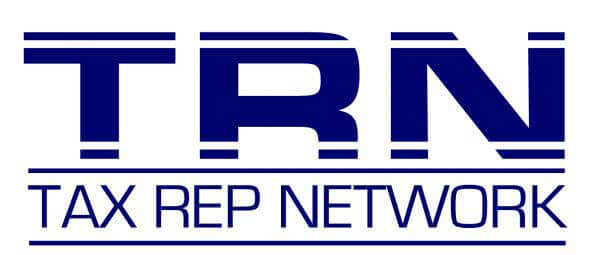
The IRS Offer-in-Compromise specialist has review the Offer is now recommending it be rejected.
Shocker.
If you do not have a lot of experience with the IRS Offer-in-Compromise program, this is quite routine. The reason, sadly, is the IRS really does not want to accept your Offer, so the Offer spoecialist will try and find any reason to deny it.
The other thing you should understand is the term “Offer Specialist” is an oxymoron. Some of the specilaists are very good, while others seem to have no clue what they are doing. Having practiced in this arena for over 20 years, I feel comfortable saying I have seen everything. Stupid reasons actually given by Offer Specialists include, but are not limited to, the following:
- They wont allow the current tax payments because the taxpayer has a bad history of paying their taxes (first of all “duh, that’s why they are filing the Offer,” and that is exactly the opposite of what the IRM states in Section 5.15)
- The Offer specialist is refusing to allow repayment of a loan where those loan proceeds went to the IRS itself (hint hint – they are required to allow this)
- The Offer specialist averages the income over the last three years, increasing it for the Offer but does not increase the tax due on that as well. When this is pointed out they state that the taxpayer “is not actually paying that tax amount.” Seriously? “Yes,” we reply, “because they are not actually earning that amount…..”
- The IRS Offer specialist cannot do math
However, evey now and then the Offer specialist actually fiunds something legitimate. They are bound to get it right at least some times.
So what do you do when you are faced with the denial of an IRS Offer-in-Compromise that you believe should be accepted? You have sveeral options:
- Appeal. We get over 92% of opur Offers accepted (vs the 48% that is the national average). In more than 75% of those cases we need to request the Appeal to get to someone who knows what they are talking about.
- Agree to an Addendum. If the IRS is calculating a higher number for the taxpayer’s Reasonable Collection Potential, and you agree that it is correct (or it is an amount the taxpayer is willing to pay to just end this process), then tell the Offer Specialist your client will agree to the increase. The Offer specialist can send an addendum for the taxpayer to sign, agreeing to the increased Offer and submitting any additional money that needs to be on file (for instance, the 20% upfront payment has now increased, so the additional amount will need to be submitted). There is no guarantee the Offer will be accepted by the supervisor, but it generally is.
Before you give up hope on that Offer, carefully consider why it is being denied, and dont just rollover becauise the Offer Specialist disagrees. If you undertsnd the Offer process and formula, chances are your Offer is good. Keep going!

 I’m excited to announce that The Accountant’s Guides Second Editions are available now! Here’s what’s been added:
I’m excited to announce that The Accountant’s Guides Second Editions are available now! Here’s what’s been added:
• Two brand new chapters: Payroll Liabilities and Personal Responsibility, and Private Debt Collectors and Passport Suspension / Revocation
• More exhibits
• IRS Abbreviations Cheat Sheet
It’s everything you need to continue your journey into the burgeoning and profitable world of taxpayer representation. Go here to find out more and start your order: https://tgpublish.com
Eric
P.S. Everyone who purchases both new Second Edition books will get 50% off my upcoming 4-hour workshop on December 3, 2019. Place your book order and we’ll send you instructions on cashing in on the discount.
 There are lots of strategies to improve your clients’ chance of settling their tax debt, but things can get sticky for those of us who practice in a community property state. The impact of “Community Property” laws can drastically change the outcome for your client. Joining Eric is Attorney Jason Freeman who will explain how community property laws work, and what strategy can be used to help your clients resolve their IRS issue in a community property state.
There are lots of strategies to improve your clients’ chance of settling their tax debt, but things can get sticky for those of us who practice in a community property state. The impact of “Community Property” laws can drastically change the outcome for your client. Joining Eric is Attorney Jason Freeman who will explain how community property laws work, and what strategy can be used to help your clients resolve their IRS issue in a community property state.
Want to Contact Jason? Email him at Jason@freemanlaw-pllc.com or visit freemanlaw-pllc.com
Want to build your Tax Rep practice? Join us inside Tax Rep LLC and get $100 off the first six months when you sign up using discount code TAXREPGO! www.TaxRepLLC.com
Check out Call Enq to get right through to the IRS in under 3 minutes (once it reopens!): https://callenq.com/trn/ and get the special tax Rep Offer for the first 200 minutes for only $19.95
Check out Tax Help Software and build your resolution practice with the best resolution software and transcript delivery system! Just go to www.TaxHelpSoftware.com and use the code TAXREPTRIAL for a free two-week trial, and then TAXREP10 and save 10% on the license fee!
Want to check out Receipt Bank? https://info.receipt-bank.com/trn
Links:
 The IRS has begun sending three different target letters to taxpayers identified as having crypto currency. Joining Eric to unpack this information and explain what each type of letter means and how practitioners can help their taxpayers respond is Walter Pagano, CPA, CFE. Walter is the leading Tax Partner for Tax Controversy at Eisner Amper. Listen in and learn what you need to know to help you and your clients deal with the IRS’s pursuit of anything crypto.
The IRS has begun sending three different target letters to taxpayers identified as having crypto currency. Joining Eric to unpack this information and explain what each type of letter means and how practitioners can help their taxpayers respond is Walter Pagano, CPA, CFE. Walter is the leading Tax Partner for Tax Controversy at Eisner Amper. Listen in and learn what you need to know to help you and your clients deal with the IRS’s pursuit of anything crypto.
Want to contact Walter? You can email Walter at walter.pagano@eisneramper.com
Looking for Walter’s webinar on Crypto Currency? Check it out here: https://www.eisneramper.com/webinar-crypto-0919/
Want to build your Tax Rep practice? Join us inside Tax Rep LLC and get $100 off the first six months when you sign up using discount code TAXREPGO! www.TaxRepLLC.com
Check out Call Enq to get right through to the IRS in under 3 minutes (once it reopens!): https://callenq.com/trn/ and get the special tax Rep Offer for the first 200 minutes for only $19.95
Check out Tax Help Software and build your resolution practice with the best resolution software and transcript delivery system! Just go to www.TaxHelpSoftware.com and use the code TAXREPTRIAL for a free two-week trial, and then TAXREP10 and save 10% on the license fee!
Want to check out Receipt Bank? https://info.receipt-bank.com/trn
Links:


 I focus my practice on civil and criminal tax representation. We represent taxpayers in New Haven, Connecticut, New York and elsewhere. As the IRS recently reminded taxpayers, significant tax debt may jeopardize your passport or your ability to acquire one.
I focus my practice on civil and criminal tax representation. We represent taxpayers in New Haven, Connecticut, New York and elsewhere. As the IRS recently reminded taxpayers, significant tax debt may jeopardize your passport or your ability to acquire one.
The IRS certifies taxpayers with the United States Department of State as having a “seriously delinquent tax debt” if they owe at least $52,000 (including interest and penalties). The State Department is required by law to deny passport applications or renewals to taxpayers with this certification. Furthermore, the IRS may ask the State Department to revoke a taxpayer’s passport.
The goal of the passport program for the IRS is to force taxpayers to come in and deal with their tax issue. Taxpayers can avoid the passport denial/revocation is they are meeting one of four criteria:
- In an installment agreement to repay the tax debt;
- Have an innocent spouse claim pending;
- Have an Offer-in-Compromise pending; or
- Have a Collection Due Process hearing pending.
Notice of passport revocation or denial of passport application is sent by mail from the State Department. A passport revocation is reversed once the taxpayer meets one of the criterial listed above, which means they contact the IRS and work on a resolution to their case.
Once the taxpayer contacts the IRS to send payment or to set up an alternate resolution, the process can begin for them to request a de-certification to the State Department. Taxpayers are being warned by the IRS that they can expect up to a 30-day delay between the debt’s resolution and their certification’s reversal. However, an expedited process is available with the proper documentation. If the taxpayer can provide documentation showing scheduled travel within the next 45 days or proving a residence abroad, the IRS can usually cut the 30-day processing time in half. Therefore, taxpayers with imminent travel plans need to promptly call the IRS upon receiving notice from the State. All applications for passports or passport renewals are kept on file for 90 days. Like all other tax-debt problems, a passport dilemma can be mitigated with prompt action.
If you need assistance with a passport issue or any other tax issue please feel free to contact me directly at (203) 285-8545 opr by email at egreen@gs-lawfirm.com.
Eric L. Green
Green & Sklarz LLC
700 State Street, Suite 100
New Haven, CT 06511
Ph. (203) 285-8545
egreen@gs-lawfirm.com
www.gs-lawfirm.com



 I’m excited to announce that The Accountant’s Guides Second Editions are available now! Here’s what’s been added:
I’m excited to announce that The Accountant’s Guides Second Editions are available now! Here’s what’s been added: There are lots of strategies to improve your clients’ chance of settling their tax debt, but things can get sticky for those of us who practice in a community property state. The impact of “Community Property” laws can drastically change the outcome for your client. Joining Eric is Attorney Jason Freeman who will explain how community property laws work, and what strategy can be used to help your clients resolve their IRS issue in a community property state.
There are lots of strategies to improve your clients’ chance of settling their tax debt, but things can get sticky for those of us who practice in a community property state. The impact of “Community Property” laws can drastically change the outcome for your client. Joining Eric is Attorney Jason Freeman who will explain how community property laws work, and what strategy can be used to help your clients resolve their IRS issue in a community property state.

 I focus my practice
I focus my practice